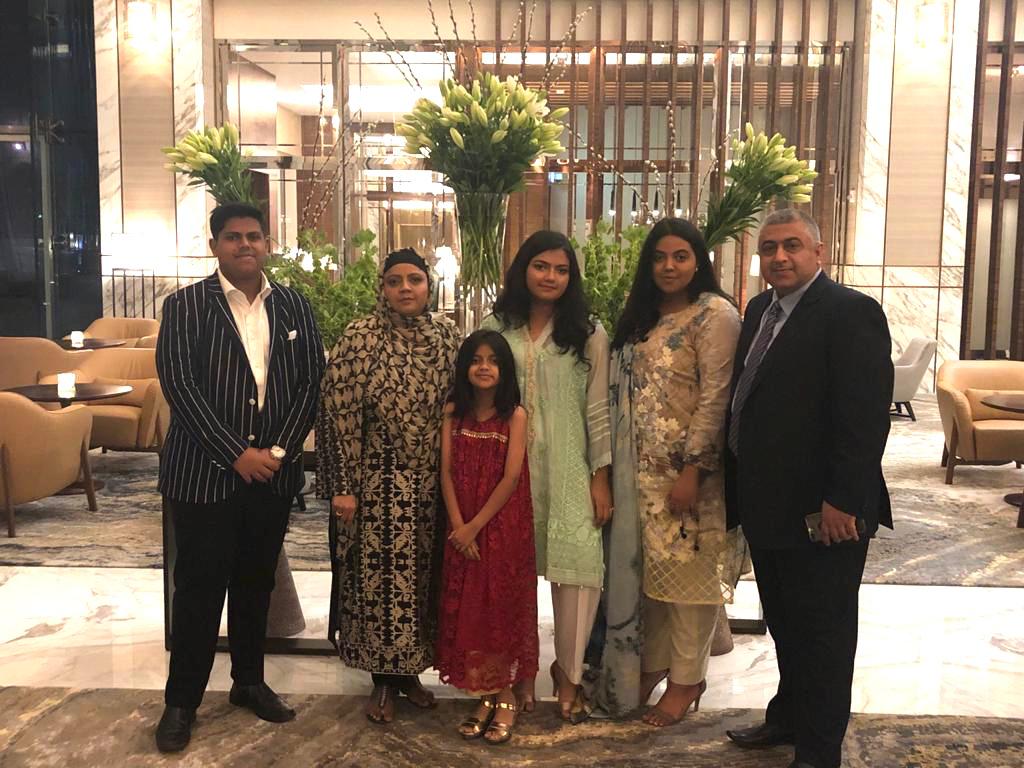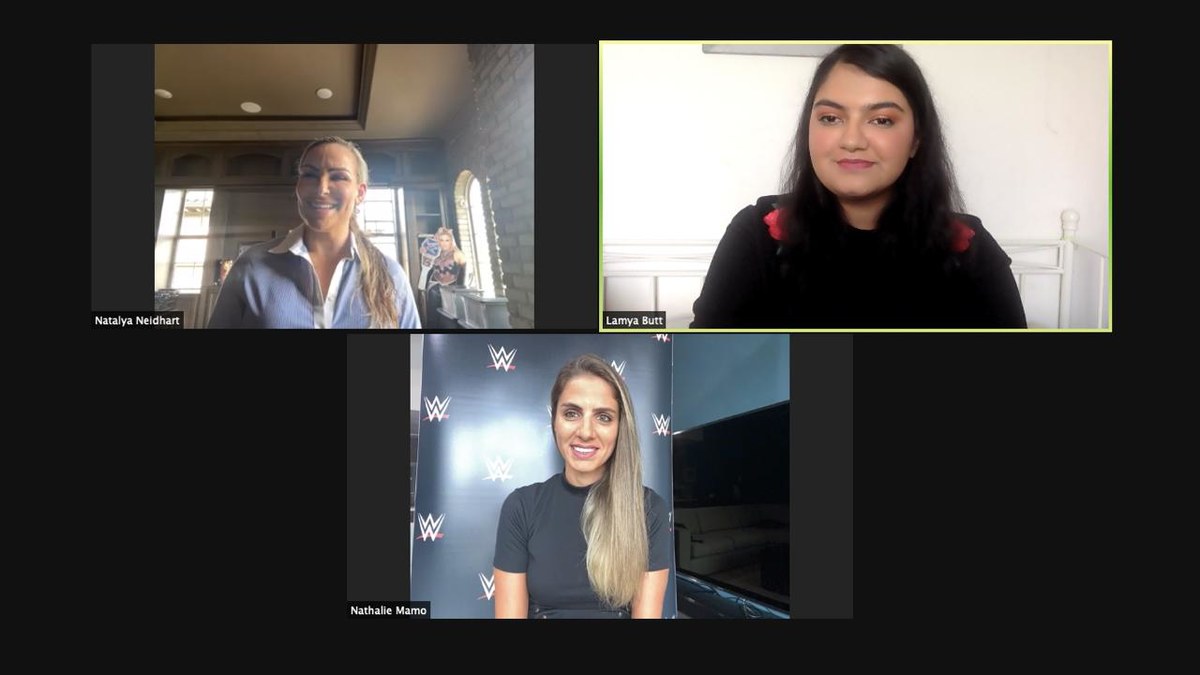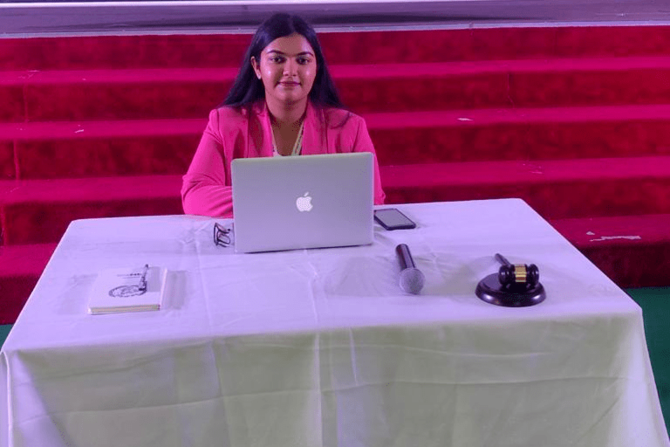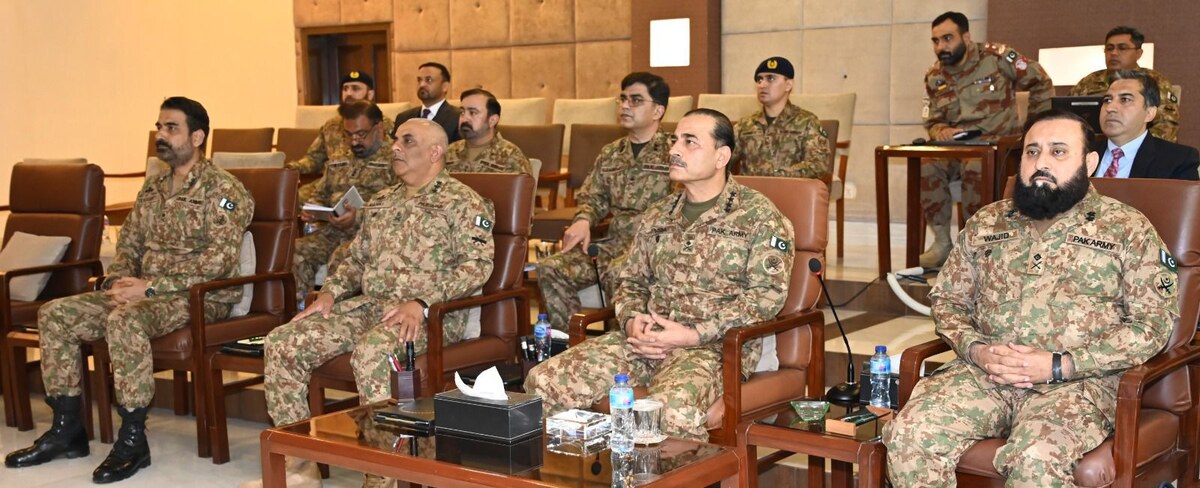DUBAI: When lockdowns were imposed in the United Arab Emirates (UAE) last year after the outbreak of the coronavirus, Pakistani expat Lamya Butt came across a newspaper article on domestic violence that would change the course of her life in the next few months.
The 17-year-old resident of Dubai, whose family hails from the eastern Pakistani city of Lahore, said she was upset by the article but also resolved to work toward creating a violence-free world for women and girls.

Lamya Butt, the UN's first Pakistani Girl Up teen advisor from the UAE, is seen with her family in Dubai in December 2020. (AN Photo courtesy Lamya Butt)
For a teenager, however, the possibilities to push for change seemed “limited,” Butt told Arab News in an interview on Monday.
But then she came across Girl Up, an initiative launched by the United Nations Foundation in 2010 to give adolescent girls in developing countries an equal chance at education, health, social and economic opportunities as well as a life free from violence. There could not have been a more tailor-made project for Butt to pursue her passions, she said.
At the end of 2020, Butt applied for Girl Up’s teen advisers’ program, and in May this year became one of 25 girls selected from 500 applicants around the world, with the Teen Advisory Board writing to inform her: “You have truly impressed us with your deep passion for change, leadership experience, and skill sets.”
“This was a huge moment for my family because they had seen me toil to achieve this goal and since I am the first Teen Adviser from the UAE, the happiness doubled,” Butt said. “For me, it meant empowerment.”
Today, Butt is Girl Up’s first teen adviser from the UAE and the first Pakistani to be appointed to the role. She is also the first regional leader from the Middle East and North Africa (MENA) region, responsible for the growth and development of more than 70 clubs in over 17 countries. She is also helping to plan and execute the upcoming Girl Up Summit’s World Tour for MENA.
“Our focus will be on breaking the gender stereotypes in the region,” Butt said.
On Sunday, she organized a conference on MENA leadership whose attendees included WWE Wrestler Natalya Neidhart, UNHCR Goodwill Ambassador Maya Ghazal, Emirati STEM genius Alia Al Mansoori, and the first Emirati Aeronautical Engineer, Dr. Suaad Al Shamsi.
The event was held ahead of Girl Up’s two-day virtual Global Leadership Summit that begins on Wednesday.
Panelists at the event include Nobel laureate Malala Yousafzai, UN deputy secretary general Amina J. Mohammed, Forbes 30 Under 30 in Science, and TIME’s “Top Young Innovator” Gitanjali Rao, actor, filmmaker and author Justin Baldoni and WWE superstar Sonya Deville.

A screenshot of the MENA Girl Up Summit which Pakistan expat Lamya Butt organized on July 11, 2021. (AN Photo courtesy Lamya Butt)
Thus far, Girl Up’s leadership development programs have impacted 85,500 girls in nearly 125 countries and all 50 US states.
With an acceptance rate of just five percent, Girl Up’s Teen Adviser initiative is its most competitive program. Collectively, Girl Up Teen Advisers have raised more than $500,000, completed more than 7,000 hours of community service, hosted hundreds of events in their communities around the world and performed thousands of advocacy actions at the local, national, and global levels.
Speaking about her journey with Girl Up, Butt said she was helped by a friend in India “who guided me and, initially, I pitched the idea of setting up a Girl Up club in my school, Dubai Scholars, which was well received.”
Butt has also been involved since May 2021 with UN Women Pakistan and the government of Pakistan, giving policy recommendations to the Ministry of Planning Commission on protecting the rights of minorities and women in general by increasing education and vocational opportunities.
This is how Girl Up executive director Melissa Kilby described Butt’s journey:
“As part of her application, Lamya shared how her Pakistani heritage motivated her to create Resilient Together, an initiative to advocate for education equity in low-income communities. We value her commitment to social justice, and her storytelling skills as the host of her own podcast that highlights diverse communities in the UAE. Lamya will bring her unique perspective and experiences to a diverse global Teen Advisory Board and to all of Girl Up. Alongside others in this cohort, she will be a role model and also be able to learn from her peers as she refines her voice and platform, inspiring and supporting girls around the world.”
Butt said the selection process for Girl Up was very lengthy and rigorous and she was required to write essays and make videos explaining why she was fit for the role of a teen adviser.
In her essay, Butt said, she spoke about how, as a Pakistani, she had found her “own voice” living in the UAE.
“Growing up in the UAE and seeing the leadership of this country has always inspired me to spread my wings … I never felt like my capabilities were limited because I was a girl,” she said. “I am blessed to live in a country where women are given the opportunities to lead by example and where I am considered no less than a man. I know that in the UAE, my hard work and commitment will take me far, doesn’t matter what gender I am.”






















